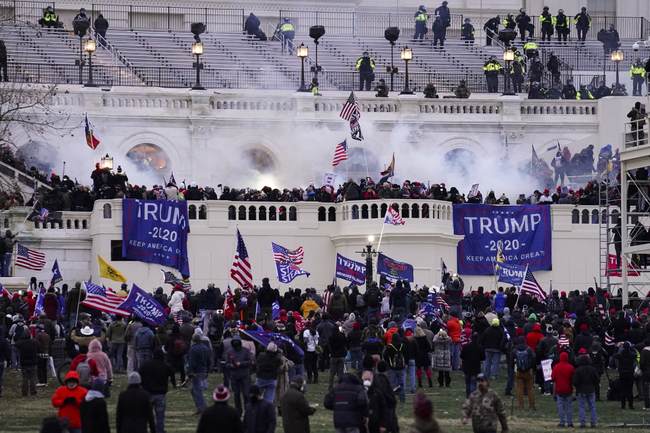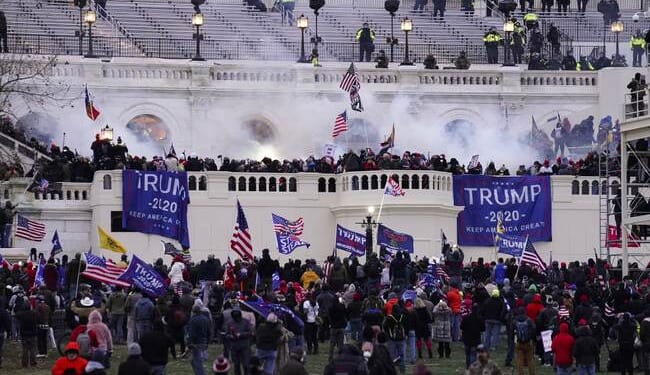
On Tuesday, the Supreme Court will hear a case that could impact the 2024 presidential election and lead to the release of or reduction in sentences for hundreds of January 6 rioters.
Before the trials began, the J6 prosecutors decided that the most serious charge they could get a conviction for was an obstruction charge. The prosecutors were alleging that the rioters obstructed an official proceeding of Congress, making the crime eligible to be prosecuted for anyone who “corruptly alters, destroys, mutilates, or conceals a record, document, or otherr object, or attempts to do so, with the intent to impair the object’s integrity or availability for use in an official proceeding; or (2) otherwise obstructs, influences, or impedes any official proceeding, or attempts to do so.”
There are two points of contention for defense attorneys. The first is the definition “corruptly” and the second is the “otherwise” wording that leads, they say, to an overly broad interpretation of the statute.
The case involves Joseph W. Fischer, an off-duty Pennsylvania police officer, who is facing several charges as a result of his admitted participation in the riot.
Fischer’s lawyers say the two sections of the statute must be read together, and the court must reject the government’s “boundless” interpretation. The obstruction measure is all about preserving the availability of evidence, they argue, as well as Congress’s interest in protecting the integrity of an investigation or other official proceeding.
“The government suggests that the Court should twist Congress’s effort into the creation of an omnibus obstruction offense for prosecutors to use in future cases,” Fischer’s legal team of federal public defenders and Jeffrey T. Green of Northwestern Law School wrote in a filing. “If there ever were a textual case in which judicial restraint is called for because Congress can broaden a statute to fit the government’s desired scope, this is that case.”
The historical aspect of this case is that two of the four criminal indictments being faced by Trump rest on the obstruction statute as it is being applied to the J6 rioters. A ruling that would throw out those prosecutions would also mean that Trump’s legal exposure would be halved.
Which way the conservatives on the court will rule has been the subject of intense speculation. The proponents of textualism — Amy Coney Barrett, Brett Kavanaugh, and Neil Gorsuch — may be more inclined to support the government’s position that Congress intended a broad interpretation of the obstruction statute. Specifically, the justices could allow the word “otherwise” to mean just that.
But many other analysts expect the court to be sympathetic to concerns about the expansion of prosecutorial power and to rule against the government. They noted, among other things, that the votes of at least four of the nine justices are required to accept a case.
In the past 10 years, the court has narrowed the use of several other criminal statutes while expressing concern about prosecutorial overreach. In addition to overturning McDonnell’s conviction in 2016, the court tossed the convictions of political allies to former New Jersey governor Chris Christie, saying the federal government went too far in prosecuting them for political retaliation. And in 2015, a divided court said prosecutors misused a far-reaching obstruction statute to go after a Florida fisherman.
Prosecutorial overreach has become a way for the government to expand the definition of what’s illegal without congressional approval. Whether enough of these conservative justices want to rein in the government’s power will be the decisive factor for both Trumo and the J6 rioters.












